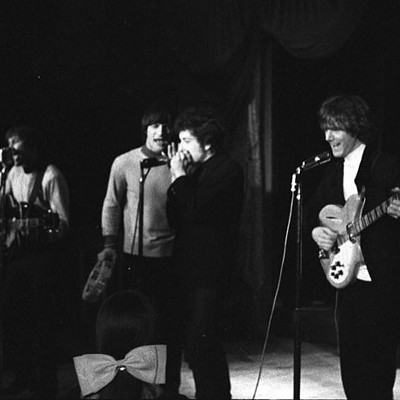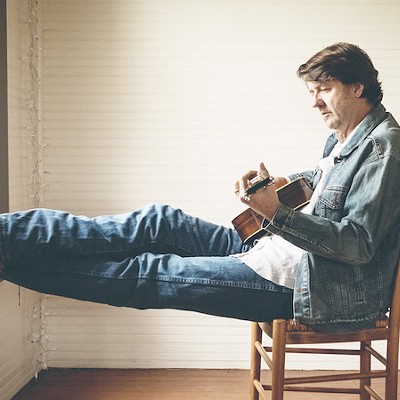Support Us
Houston's independent source of
local news and culture
account
- Welcome,
Insider - Login
- My Account
- My Newsletters
- Contribute
- Contact Us
- Sign out
My Friends Are Gonna Be Strangers: 18 Readings From The Book Of Hag
Chris Gray February 16, 2010 2:45PM
[
{
"name": "Related Stories / Support Us Combo",
"component": "11591218",
"insertPoint": "4",
"requiredCountToDisplay": "4"
},{
"name": "Air - Billboard - Inline Content",
"component": "11591214",
"insertPoint": "2/3",
"requiredCountToDisplay": "7"
},{
"name": "R1 - Beta - Mobile Only",
"component": "12287027",
"insertPoint": "8",
"requiredCountToDisplay": "8"
},{
"name": "Air - MediumRectangle - Inline Content - Mobile Display Size 2",
"component": "11591215",
"insertPoint": "12",
"requiredCountToDisplay": "12"
},{
"name": "Air - MediumRectangle - Inline Content - Mobile Display Size 2",
"component": "11591215",
"insertPoint": "4th",
"startingPoint": "16",
"requiredCountToDisplay": "12"
}
,{
"name": "RevContent - In Article",
"component": "12527128",
"insertPoint": "3/5",
"requiredCountToDisplay": "5"
}
]
When Merle Haggard and Kris Kristofferson take the Verizon stage for tonight's "Who's More Grizzled?" grudge match, they'll bring with them a century of experience as two of the most iconoclastic, poetic voices in popular song, country or any other genre. No disrespect to Kristofferson (four words: "Sunday Morning Comin' Down"; okay, eight: "Me and Bobby McGee"), it's Haggard - now all of 72 years young - who's been the real beacon for us lately.
Even the bottle lets us down sometimes, but the Hag never does. Rocks Off has spent the past few days combing one of the true jewels of our collection, Capitol's 1996 box set Down Every Road (100 songs! Buy it!), for Merle's pearls of wisdom on all manner of subjects. If this makes us like our dad, we couldn't be happier. Stay, and teach me to forget.
Bars and Taverns
A popular setting for some of Haggard's earliest breakthrough singles, which in turn became among the defining songs for honky-tonk as we know it today. A less common subject in his later years, Haggard periodically returned to the barstool whenever he needed a drink. We can relate.
"Swinging Doors": Set the standard for honky-tonk tunes about barrooms as second homes. "In here the atmosphere's just right for heartaches/ And thanks to you I'm always here 'til closing time."
"Tonight the Bottle Let Me Down": Sooner or later, we've all been here. "Tonight your memory found me much too sober/ Couldn't drink enough to keep you off my mind." One of the greatest couplets in country-music history.
"I Think I'll Just Stay Here and Drink": Ornery as ever, Hag turns being kicked out of the house into a one-man barstool party, with a tasty saxophone break to boot. "Ain't no woman gonna change the way I think/ Think I'll just stay here and drink."
Freedom and Individuality
A straight shooter until the end, Haggard has always called 'em exactly like he's seen 'em no matter who he pisses off. Still does.
"Okie from Muskogee": Arguably Hag's best-known song - although not his biggest hit - "Okie" struck a chord with Richard Nixon's small-town "silent majority" and peaked just outside the Billboard Top 40 in 1970. "We don't burn our draft cards down on Main Street/ We like livin' right and bein' free."
"I Take a Lot of Pride In What I Am": Haggard draws on his hardscrabble early years to draft as good a manifesto as anyone can in less than three minutes. "I've never been nobody's idol, but at least I got a title/ I take a lot of pride in what I am."
"The Running Kind": Once a rolling stone, always a rolling stone. "Every front door found me hoping I would find the back door open/ There just had to be an exit for the running kind."
Family Matters
Autobiographical or not, some of Haggard's best songs have been about close relations.
"Mama Tried": Another all-time classic that set the table for everything from Johnny Paycheck's "The Only Hell My Mama Ever Raised" to Willie Nelson's "Mamas Don't Let Your Babies Grow Up to Be Cowboys." Almost as famous for its opening glissando guitar line as its there-you-have-it refrain: "I turned 21 in prison, doing life without parole/ No one could steer me right but mama tried."
"Daddy Frank (The Guitar Man)": Irresistible toe-tapper about a family band that, despite some pretty serious burdens, somehow made it work. Memorably covered by Robert Earl Keen on Hightone Records' 1994 Haggard tribute Tulare Dust. "Fever caused my mama's lack of hearing/ Daddy Frank was born without his sight."
"I Wonder If They Ever Think of Me": This song, told from the POV of a Vietnam POW, should have shut up anyone who painted Haggard as a hawk after "The Fightin' Side of Me." "And I remember daddy saying you'll come back a better man/ And I wonder if they ever think of me."
Relationships
Whether falling in or out of love, there's enough material on Down Every Road to soothe your broken heart or put you in the mood. (The former do outweigh the latter... we ain't talking about Sinatra here.) A few highlights:
"(My Friends Are Gonna Be) Strangers": The song that gave Haggard's longtime backing band, who has this tour off, its name. "The only thing I can count on now is my fingers/ I was a fool believing in you, and now you are gone."
"I'll Always Know": Catch your significant other red-handed (or red-assed) in the act, and it might go down a lot like this. "Your heart is like a window, when I look inside I see another man/ But go on and lie and tell him how you fooled me, but remember I saw through your evil plan."
"Let's Chase Each Other Around the Room": Even a blind horse finds a carrot every now and then, and this song spells out a longtime married couple's second honeymoon in no uncertain terms. "I'd rather stay at home and feel your burning lips/ And play the kind of games that make me glad."
Mardi Gras Bonus: "Living With the Shades Pulled Down"
Hard Times
From the very beginning, this son of the Dust Bowl has never lost touch with his roots, and made them one of his major themes with uncanny, almost unparalleled sympathy for folks on society's margins.
"Skid Row": The very first song on Down Every Road is the very first song Haggard released back in 1962. It places him as an heir to Woody Guthrie as much as Hank Williams, even though it sounds a lot more like Buck Owens than either one. "My wine's all gone and I need some more/ Standing on the corner of Skid Row."
"Sing Me Back Home": Times don't come much harder than hard time in prison, and this song - probably one of Haggard's most-covered, though such a thing is almost impossible to judge - could melt the heart of even the most hardened warden and yard dog alike. "The warden led a prisoner down the hallway to his doom, I stood up to say goodbye like all the rest/ And I heard him tell the warden just before he reached my cell, 'Let my guitar-playing friend do my request.'"
"If We Make It Through December": This, not "Okie from Muskogee," is Haggard's biggest hit, reaching No. 28 on the Billboard pop chart in 1974. It's not exactly full of Yuletide cheer - the overall tone may be hopeful, but Haggard sings it like the outcome is in real doubt. "Now I don't mean to hate December, it's meant to be the happy time of year/ And why my little girl don't understand, why daddy can't afford no Christmas here."
Social Issues
A close corollary to the above category. Haggard has never been afraid to put his social conscience front and center in his songs, in a manner perhaps rivaled only by his late friend Johnny Cash.
"Irma Jackson": Just when "Muskogee" had John BIrchers everywhere thinking Haggard was their new best friend, he went and dropped this little interracial love ballad on them. Crazy like a fox, this one. "There's no way the world will understand that love is color-blind/ That's why Irma Jackson can't be mine."
"Tulare Dust": Written about Okie migrants who could have been plucked straight from The Grapes of Wrath, "Tulare Dust" could apply just as well to the undocumented workers working today's fields and sending what little money they do make south of the border. "I can see mom and dad with shoulders low, both of them pickin' on a double row/ They do it for a living because they must, that's life like it is in the Tulare dust."
"That's the News": Not included on Down Every Road, but it would have been had this withering critique of the media's Iraq-war coverage not come out in 2003. Needless to say, was not a Clear Channel "Pick of the Week." "Politicians do all the talkin', soldiers pay the dues/ Suddenly the war is over, that's the news."
KEEP THE HOUSTON PRESS FREE...
Since we started the Houston Press, it has been defined as the free, independent voice of Houston, and we'd like to keep it that way. With local media under siege, it's more important than ever for us to rally support behind funding our local journalism. You can help by participating in our "I Support" program, allowing us to keep offering readers access to our incisive coverage of local news, food and culture with no paywalls.
Chris Gray has been Music Editor for the Houston Press since 2008. He is the proud father of a Beatles-loving toddler named Oliver.
Contact:
Chris Gray
Trending Music
- Country Rock Thrives with Gene Clark and Flying Burrito Brothers for Record Store Day
- Bruce Robison Is The Eternal Song Hunter
- Low Cut Connie Keeps One Foot In The Gutter
-
Sponsored Content From: [%sponsoredBy%]
[%title%]

Don't Miss Out
SIGN UP for the latest
Music
news, free stuff and more!
Become a member to support the independent voice of Houston
and help keep the future of the Houston Press FREE
Use of this website constitutes acceptance of our
terms of use,
our cookies policy, and our
privacy policy
The Houston Press may earn a portion of sales from products & services purchased through links on our site from our
affiliate partners.
©2024
Houston Press, LP. All rights reserved.





